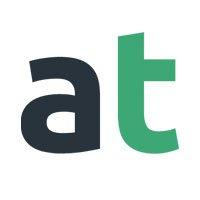Invest in startups in exchange for equity
Invest in farmland
Investments
$100
The standard minimum investment on Wefunder for most Community Rounds is $100. However, the exact minimum can vary based on the specific offering and the investor's status as an accredited investor.
Investments
$15,000
The minimum investment on AcreTrader varies by listing, generally starting at $15,000, with some past deals ranging from $3,000 to $100,000. This range is determined by factors such as the size of the offering and the price per acre.
High Risk
4/5
Investing in startups on Wefunder is highly risky, and there's a real possibility of losing your entire investment.
Moderate Risk
3/5
Investing in AcreTrader involves risks like casualty, condemnation, and eminent domain, common to real estate investments.
Minimum Liquidity
1/5
Wefunder's investments are not highly liquid, as there is no public market for selling your stake. After one year, you can sell to any interested buyer.
Minimum Liquidity
1/5
AcreTrader investments are considered illiquid, meaning investors should be prepared to hold their investments for the specified duration. While it may be possible to sell shares in a private transaction after this period, there is no established market for them, making resale uncertain.
Receive new reviews from Fintorial
Not Predictable Return
N/P
On Wefunder, investors can earn returns through different investment mechanisms: Debt, Convertibles Stock (No Dividends), Stock, Dividends. Investment returns on Wefunder vary by investment type, with dividends more typical in later-stage, non-tech businesses.
High Return
9.4-30.3 %
The returns from investing in AcreTrader vary, with historical examples showing realized internal rates of return (IRR) ranging from 9.4% to 30.3% over holding periods between 1.7 and 4.2 years. These variations highlight the potential for both moderate and significant returns, depending on the specific investment and market conditions.
Long-term Investment
7 years
Investments on Wefunder are long-term, with an average return period of around seven years, particularly for convertible notes or SAFEs.
Long-term Investment
3-10 years
AcreTrader investments target hold periods of 3 to 10 years, though this can vary based on market conditions and sale opportunities. Properties may sell earlier or extend beyond the target period, depending on whether favorable buying offers arise or if market conditions dictate a longer hold.
Who can invest
International
Individuals 18 and older can invest on Wefunder, regardless of whether they are accredited or non-accredited investors. Additionally, Wefunder allows investments through entities.
Who can invest
United States
Investing on the AcreTrader platform is limited to accredited investors, as defined by SEC regulations. Non-U.S. citizens can invest if they are legal residents of the United States.
Moderate Volatility
3/5
The assets on Wefunder, primarily startups and small businesses, are highly volatile due to the uncertain success of these ventures and fluctuating market conditions.
Moderate Volatility
3/5
Farmland assets on AcreTrader typically exhibit lower volatility compared to stocks and bonds, offering a more stable investment option due to the steady demand for agricultural products and the land's intrinsic value.
Regulation and audits
SEC Regulated
Wefunder is regulated by the SEC and FINRA under Regulation Crowdfunding (Reg CF), requiring it to adhere to strict rules about investment limits, company fundraising, and disclosures.
Regulation and audits
SEC Regulated
AcreTrader is regulated by the Securities Exchange Act of 1934, SEC rules, FINRA rules, and state laws, reflecting its commitment to transparency and investor protection. As a registered Broker-Dealer, it must adhere to strict financial standards, undergo regular audits, and comply with ethical practices to maintain its standing and ensure the security of its investors' assets.
Insurance
Yes
AcreTrader does not explicitly mention specific insurance coverage for investments on its platform. Generally, real estate investments, including farmland, are insured against risks like natural disasters and fire to protect investment value.
Payouts
No Recurring Payouts
Wefunder investments typically do not offer dividends, as they are often in early-stage startups focusing on growth.
Payouts
Dividends
AcreTrader may distribute net cash from annual income to investors after operating expenses, typically once a year in December. These distributions, based on pro rata ownership, are not guaranteed. If distributed, funds go to the investor's AcreTrader wallet or, for SDIRA or IRA accounts, to the custodian.
Withdrawals
On Wefunder, investors primarily see returns from liquidity events like acquisitions or IPOs, where investments may convert to cash or shares. After the first year, shares can be sold to any interested buyer, with Wefunder facilitating the transfer process. For debt investments or revenue shares, returns follow the agreed terms, like fixed repayments or revenue-based payouts.
Withdrawals
Investors can typically get their money back when the property they've invested in is sold at the end of its expected hold period, which may range from 3 to 10 years.
Extra Fees
Yes
Wefunder charges a one-time transaction fee of 2% for bank payments and 5.5% for credit card payments. For WeFunds, an administrative fee covers lifetime costs like filings and accounting, with no additional contributions required from investors.
Extra Fees
Yes
AcreTrader charges investors initial closing costs around 2% of the offering value and an annual 0.75% servicing fee of the land's value for management. The primary revenue comes from a 5% commission on the farm's sale, charged to the seller. There are no “carried interest fees.” Fee structures vary by deal, so reviewing offering documents is recommended for specifics.
Taxes
Tax Form
Wefunder supports tax reporting for investors by providing Schedule K-1 forms for those invested through LLCs or SPVs, detailing taxable gains or losses. For investments receiving payments, such as revenue shares, Form 1099 may be issued to report income.
Taxes
Tax Form
AcreTrader aims to provide K-1 tax forms electronically by early March, although delays can occur due to external reporting needs. Tax treatment varies: gains on land sold within a year are taxed at ordinary income rates, while longer holdings are taxed at capital gains rates. Depreciation on buildings or equipment may affect taxes.

